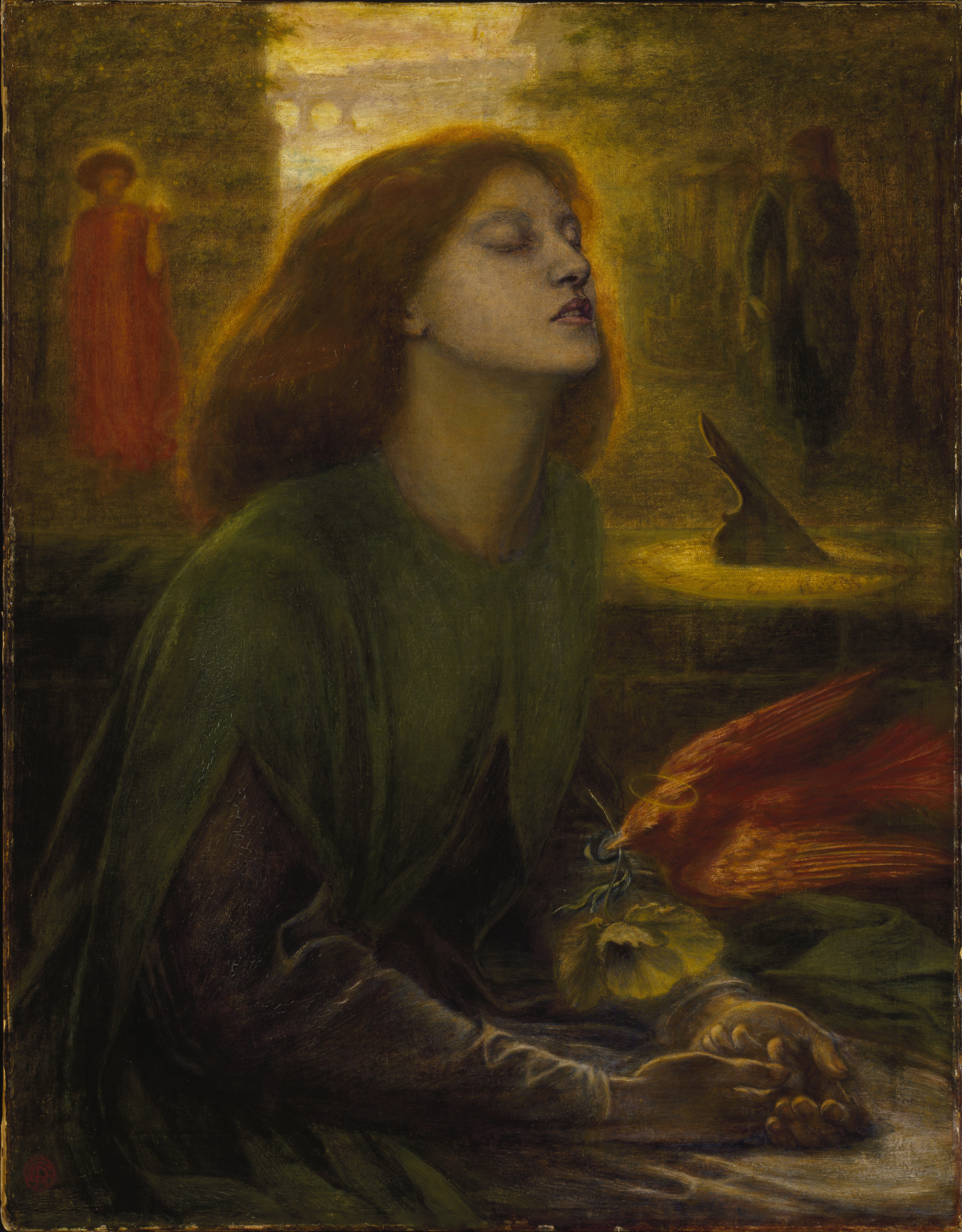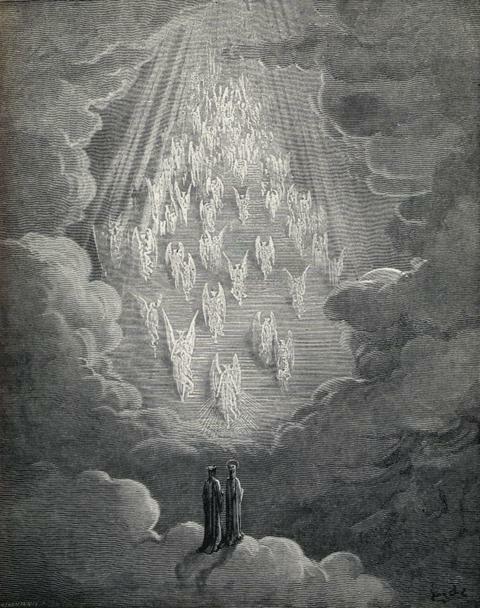Happy Solemnity of Saints Peter and Paul! I'm quite fond of this feast. St Peter has long been one of my heroes: he's such a magnificent example, throughout the Gospels and even into Acts and Galatians, of someone in the process of conversion. His simplicity, in both the bad and the good sense, is something of a byword, and it's encouraging to someone like me who trips over his own feet so much.
Being raised a Presbyterian, I'd had St Paul being shoved into my mouth and both ears for as long as I could remember, and so for a little while after my conversion to Catholicism I felt sort of Pauled out. But I feel now as if I've rediscovered him a little; I don't understand all of what he says very well, but the moving language with which he speaks of Jesus is difficult to rival. Modern scholarship tends to be so concerned with him as either a hellfire-preaching misogynist and homophobe, or a modern egalitarian who wrote none of the work ascribed to him (which was in fact written by another man of the same name), that the real focus and energy of his writings is often lost. But it is from St Paul -- not even, as we might have expected, from St John -- that we get passages like the hymn to love, the hymn of Christ's kenosis, or such arresting and beautiful pieces of mysticism as: I am crucified with Christ: nevertheless I live; yet not I, but Christ liveth in me: and the life which I now live in the flesh I live by the faith of the Son of God, who loved me, and gave himself for me; or, Since by man came death, by man came also the resurrection of the dead, for as in Adam all die, even so in Christ shall all be made alive.
+ + +
II.
My parish had an exciting adventure this weekend: we had a long day of rain in Baltimore, and the undercroft and side stairwell flooded. Vacuuming water off the floors and out of the carpet, emptying every bucket and trash can we could find into the sidewalk drain, prying down broken and sagging ceiling tiles, and praying that it wouldn't start raining again in the night, took up well over five hours. One of the hazards, I guess, of a church building that was constructed in 1842.
Thank God it wasn't in the sanctuary. Or during Mass.
Repairing the leak, which is probably a problem with the flashing on one of the long-disused chimneys, shouldn't be problematic in itself, but our church is neither large nor wealthy. We need a new boiler, which is expected to run to $50K, among a myriad of other budget needs large and small. Please pray for us -- and if you'd like to donate to help us with the boiler too, thanks very much, and the parish address is:
Mount Calvary Church
816 North Eutaw Street
Baltimore, MD 21201-4624
+ + +
III.
The Baltimore city authorities have displayed a striking lack of conscience and compassion recently. With only a few days' notice (assuming the signs were put up when they're dated for), an area under one of the overpasses in the city where local homeless folks set up their tents has been abruptly fenced off. As far as I can tell, there is no reason for this except to kick the homeless out of it -- the sign that it is closed "for cleaning" notwithstanding, since, in my observation (I drive past it nearly every day on my way to work), it's one of the cleaner places in Baltimore, possibly because there were people living there who don't care to sleep in heaps of garbage.
Taken the day before yesterday with my phone at Franklin Street and (ha) Martin Luther King Boulevard.
It's a field under an overpass, not a shopping center or a spacious neighborhood (though personally I find it hard to sympathize with the idea that homeless people ought to be kicked out of those, either). It's one of the few place they could erect their tents in a place with a little less rain and sun than usual, and that in a summer that has been alternating between the standard cloying heat of the Chesapeake and an atypical series of chilly, turbulent, wet days and weeks. Even on a purely natural level, these people are just as much a part of Baltimore as anybody else -- it's stupid and callous to eject them from a patch of land they've been using for at least the last few years. And on a supernatural level, well, Inasmuch as ye have done it unto the least of these, My brethren, ye have done it unto Me.
I'm kind of a dunce when it comes to knowing whom to contact about this sort of thing. Can anyone advise me? -- city officials (and if so which ones), philanthropists, journalists, something?
+ + +
IV.
This will probably be my last post for a week or two; in addition to the work I'm devoting to other projects, I will be out of the world for a spell in early July. Some friends of mine make a trip up to the Adirondacks every summer, and they've invited me to go with them, three years running now. I love being up there: being away from the bustle of daily work, to say nothing of the sleepless noise of the city, out in the forested mountains, eating trail mix and bacon cooked over fires and earning blisters in the boots you never got around to breaking in before you left.
+ + +
V.
My novel, Death's Dream Kingdom, has been delayed. I'd hoped to have it out by the first of July, but a lot of other obligations have caught up with me, so it'll likely take rather longer. I'll keep you all updated. To tide you over, here is another selection from it.
After Marie had fled up the stairs, Augustus remained below, pacing the library for more than an hour. He hesitated over this volume or that at times, unable to drum up real interest in any. When some time had gone by, he murmured aloud, though no living soul could hear him:
“Quand la pierre, opprimant ta poitrine peureuse
Et tes flancs qu’assouplit un charmant nonchaloir,
Empêchera ton coeur de battre et de vouloir,
Et tes pieds de courir leur course aventureuse,
Le tombeau, confident de mon rêve infini.”*
He rubbed his fingers together, as if to warm them. At last, he turned his steps out of the library and went to a door beneath the servants’ stair. He reached into the collar of his shirt, and pulled a cord up over his head, from which there hung a heavy key; he opened the door with it and went inside, shutting the door behind him, and from the outside the noise of the lock being re-secured could be heard.
Marie passed the day in a trance-like languor. Except for her brief outburst of tears, she sat still on her bed, staring out of the curtains that she had never bothered to shut properly, and making no reply to Hyacinth’s knocks. Slowly, the column of sunlight let in by the window, which she could see would never cross the bed itself, crept over the floor, the inverse of the shadow on a sundial.
At a quarter past four, there was a soft knock on her door. “Bonsoir,” came Augustus’ voice through the wood. “May I come in?”
“Yes,” she answered indifferently.
He did, and gave a sharp cry of alarm. “Hell, child! Are you mad, leaving the drapes open like that? You could have been burned alive!”
“Not really,” she said.
Throwing Marie an invidious look, her sire went to the window, cautiously skirting the deadly light of the fading sunset, and pulled the cord that drew the curtains shut. He then went over to the wall lamp and turned it up, filling the room with a pink-tinged light.
“How are you this evening?” he asked.
She said nothing. All of her emotions and reactions seemed to have been drained from her by the strains and shocks of the previous night. Everything, even looking from one object to another, seemed to require a Sisyphean effort.
“Come and have something for breakfast.”
“I am not hungry.”
“Go on,” he coaxed, “it will make you feel better. Something out of a glass again.”
“I am not hungry.”
Marie looked up at Augustus. He appeared – well, no, he appeared as unassailably suave as ever to the eye. But something about him felt different: anxious, or something.
She turned to face the Holy Communion of Saint Teresa on her wall. “Did you paint that?”
He walked over to it, touching the frame lightly. “Yes. I spent a whole summer on it, back in 1745 – the days get so long, and there is little enough to do. I copied a number of paintings in the eighteenth century; most of the pictures you see about the house are my own work; quite flawless, if I do say so, though I owe that more to my undead eyes and hands than to native talent. There is a Bacchus in the library – Caravaggio’s – and Fuseli’s Lady MacBeth is in my private study. And of course you have seen Titian’s Venus With a Mirror in the tower, among others.”
“How did you do it?”
“Do what?”
“Copy a sacred subject?” she asked. “We are vulnerable to sacred things, aren’t we?”
“Yes, ma fleurette, but this is only a picture.”
“I don’t understand.”
“The sanctity does not come from the subject matter, but from the essential function of the artwork,” Augustus said. “In order for this to injure me or you, it would need to have been painted in order to serve as an icon, in a church or a chapel, and blessed accordingly. Without that, there is no sacramental power in the mere painted shapes, and it is simply” (he laid his hand over the saint’s face) “a picture. You’ll find in the same way that you can, for instance, quote from the Bible or the texts of the Mass when your intention is purely literary, but that you are quite unable to pray.”
“Why is it that we are vulnerable to these things?”
“My dear, if I knew that I should have blown up Saint George’s Cathedral. The traditional explanation is that we have no souls; though personally, I do not feel that I have seen any great evidence of souls in humans, either, so that the explanation does not explain. Be that as it may, a fact is a fact, and for practical purposes that is enough.”
Marie smiled, a little incredulous. “You are an immortal creature who can read thoughts and must fear the words and gestures of a priest, and yet you are skeptical about the existence of the soul?”
He smiled back, not nicely, and replied, “And do you feel any differently than you did before?”
Her stomach twisted around itself. She stared back at him, mute. Smug as a cat, Lord Ravenhurst put out his arm for her, and she angrily took it and went down with him to the dining room.*"When the stone, oppressing your frightened breast
And your flanks, now supple with charming nonchalance,
Will keep your heart from beating and from wishing
And your feet from running their adventurous course,
The grave, confidante of my limitless dreams ..."
From Remords Posthume ('Remorse after Death') by Charles Baudelaire.



.jpg/150px-Holy_Spirit_as_Dove_(detail).jpg)

.jpeg)


.JPG/1024px-Lilium_longiflorum_(Easter_Lily).JPG)




